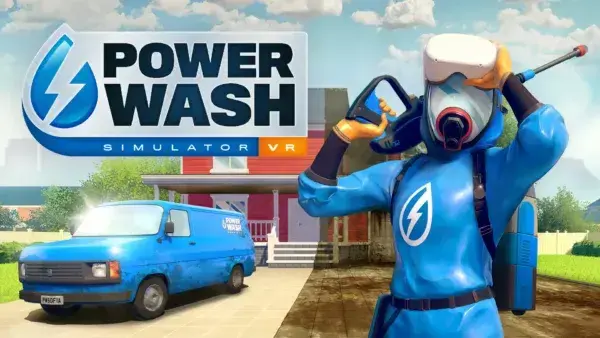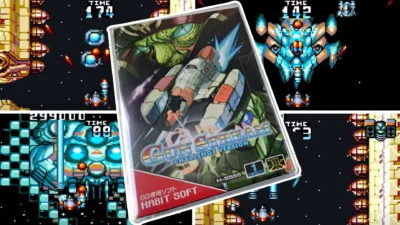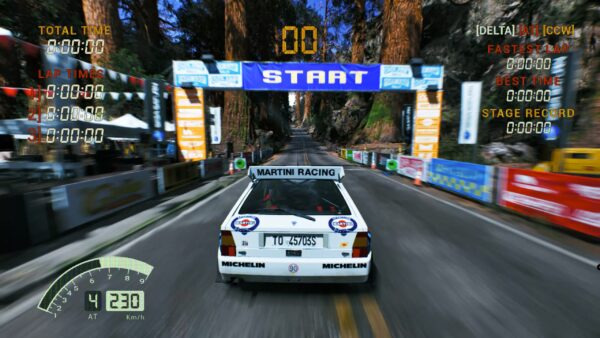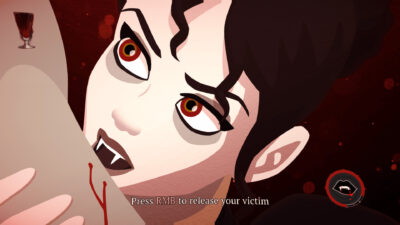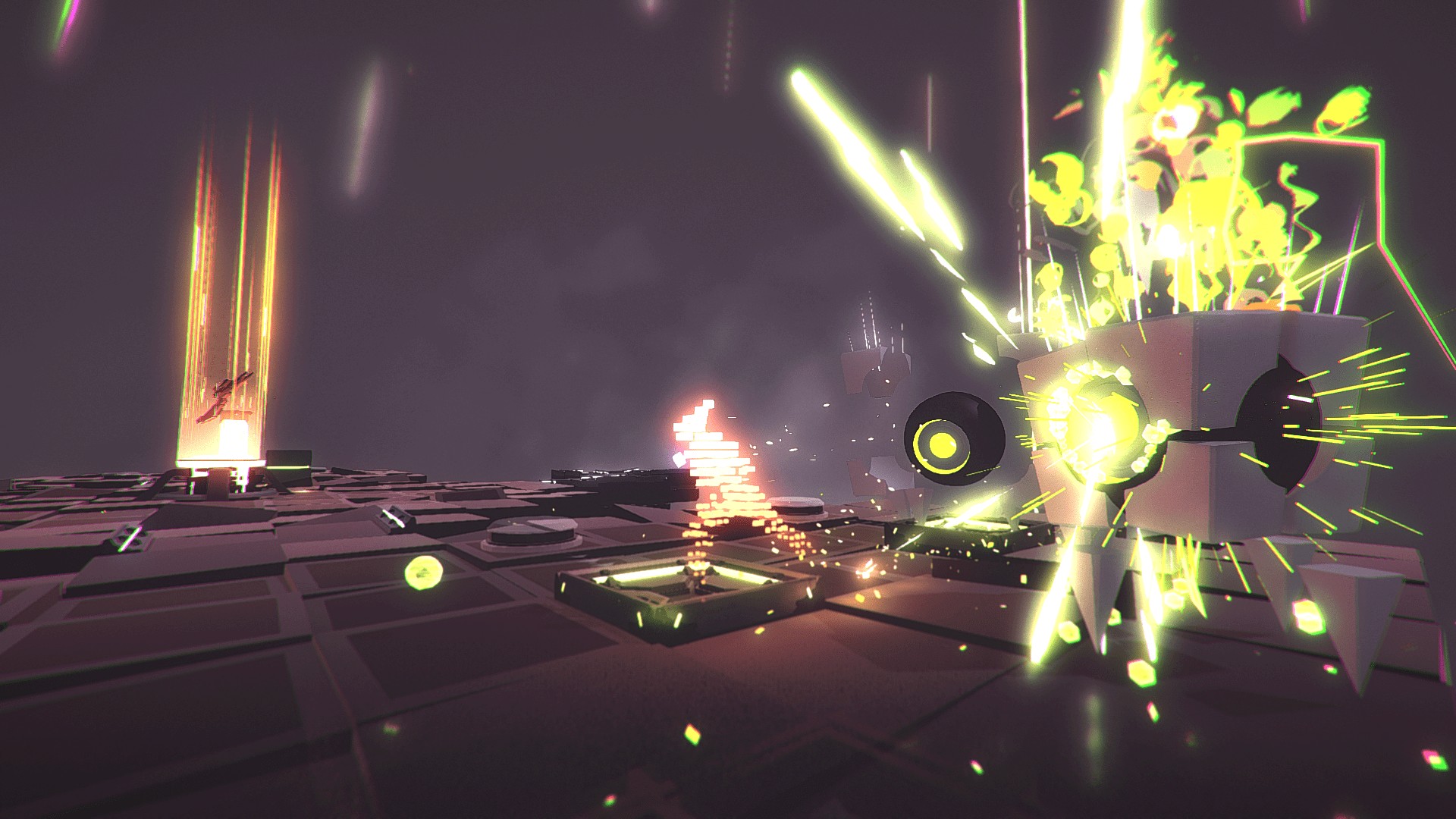
Looking at YouTube videos or perusing still images is one thing, but there are some games where you have to experience them to truly appreciate their potential – it’s only when you feel the responsiveness of their controls that things really click into place. Such is the case with Recompile, the forthcoming 3D Metroidvania from Manchester-based indie studio, Phigames.
Recompile certainly looks striking: its low-poly world, set inside a computer mainframe, recalls the clean lines of Disney’s Tron and Mike Bithell’s sneak-’em-up, Volume. What’s even more striking is how Phigames have created a place that feels alive as you move through it: as blocky platforms form in front of you and shadowy towers shiver into existence, Recompile positively crackles with energy.
You take on the role of The Program, a computer virus injected into a mainframe with the goal of creating “the first sentient AI”. In time-honoured Metroidvania style, Recompile has you exploring an open map and acquiring abilities which in turn help unlock new areas; the twist here is that the world itself will begin to adapt and change depending on your approach to the game, as programmer and director Phi Dinh explains. “It has a dynamic narrative, so the kind of AI you create depends on your play style,” Dinh tells us. “So if you go around shooting stuff and being aggressive, you’ll end up with an angry AI, and if you’re more hacking-oriented and stealthy, then you’ll get a different AI personality.”

Approach with guns blazing, and the AI will react more aggressively.
A ten-minute demo Wireframe got its hands on earlier this spring provided a taste of Recompile’s abilities: The Program can blast away at the Mainframe’s army of cuboid enemies with a satisfyingly meaty rifle, hover through the air, and perform an infinite jump – the latter allowing us to get a better view of Recompile’s impressively large landscape. Looming in the distance, we can see the outline of a building we later learn is called the Hypervisor Core; in a nod to Breath of the Wild, it’s a place we’ll be able to visit later in the game once we have the right abilities, Dinh says.
To get there, Recompile will require the mastery of combat, terrain traversal, and the hacking of power grids and locked doors – activities enlivened by some frankly gorgeous visual effects, dreamed up by Dinh and VFX/animation artist James Vincent Marshall.
“There’s all kinds of physics stuff and crazy shaders that we use for the visual effects,” Dinh explains. “It’s built in Unity, but we don’t use any of the standard shaders – it’s all custom shaders, and that’s why people are really surprised when I say it’s made in Unity, because it doesn’t look like a Unity game.”

Phigames cites Breath Of The Wild as an influence in the design of its open map: “In a digital setting, rather than fantasy.”
Recompile began life three years ago as a project Dinh worked on in his spare time, while other collaborators – including Marshall, composer Richard Evans, and narrative designer Faye Simms – lent their talents for free. Thanks to some much-needed financial support from publisher Dear Villagers, though (see boxout), Dinh was able to work full-time on Recompile from November last year. “Games are so expensive to make, and people are expensive to hire, but you need a good team – so you need funding somehow,” Dinh says. “Now everyone’s full-time on the project.”
“Because the project had so much potential, I was happy to work on it in my spare time while I was working for another company,” Marshall adds of Recompile’s early stage of development. “I saw some special stuff going on in this game, and I thought, ‘I need to get on with this’.”
With such a small, agile team, Phigames has been able to come up with ideas for Recompile’s glitchy, glowing aesthetic relatively quickly, as Marshall explains. “It’s a very weird process. It wasn’t traditional in the sense of concept art signed off and then developed. It was very much an internal vision that I had, and we just riffed off each other. We made it organically together.”

Although built in Unity, Recompile uses a suite of custom shaders to create its unique look.
“Because we’ve got such a small team, there was no point in having concept art,” Dinh concurs. “[Marshall] could model something, send it to me, and I can have it in the game that day. And if it looks rubbish, we can get rid of it, or reiterate it, and then we end up a week later with something that’s really polished. We don’t need a game document or a concept artist; we can just make it.”
Dinh estimates that there’s still about a year of development left before Recompile is ready to launch; one of the hurdles they’ve yet to clear, he says, is the game’s transition from PC to other platforms. “I think mostly it’s going to be optimising for performance,” Dinh tells us. “A lot of the physical stuff, like lighting and VFX, is in real time, which means when we’re optimising for consoles or handhelds, it’s going to be really difficult. That’s my concern at the minute.”
As our conversation with Phigames draws to a close, we watch as another player sits down and starts moving around Recompile’s world. With a tap of a button, the player sends The Program leaping into the air and crashing back on the ground, causing a shower of blocky sparks. The player grins at the effect. If Phigames can make the rest of the game as tactile and pleasing as this, Recompile could prove to be something very special indeed.

“We wanted to take that really responsive feel – twitchy, like Castlevania in 3D,” Dinh says of Recompile’s controls.
Standing out
”A few years ago, you could put your game on Steam, but there are so many games now,” Dinh says, when we ask him about the importance of finding an indie publisher like Dear Villagers. “So how do you stand out?”
“Well, my advice is, hire an artist,” Marshall (the game’s artist) laughingly cuts in.
“Oh yeah, there’s that,” Dinh says. “But with a publisher, they already have that network. Publishing means you get (funding), but also they provide marketing, PR help, and stuff that I don’t want to do. I want to make a game, and not do all this other stuff. And that’s important – I think that’s the way forward.”
Genre: Metroidvania
Format: PC / other platforms TBA
Developer: Phigames
Publisher: Dear Villagers
Release: 2020


